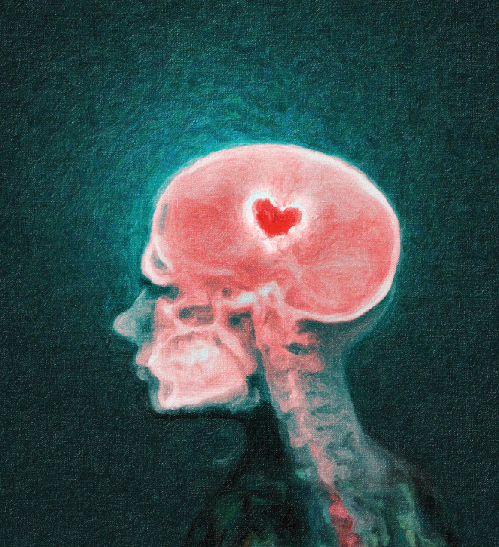|

Love is tough, even for the experts.
Dr. Mao Lihua has worked in psychology and neuroscience for the past decade. But, says the Beijing-based Peking University professor, "I don't think my training in psychology has had any obvious effect on my understanding of love. Love is so spontaneous in the brain, no matter how much knowledge you have, your body and brain will respond automatically. It's very hard to override an unconscious process with consciousness." Romance, he explains, is backed by "a very complicated state of the human mind."
And yet, while intense love is an emotional experience, it's not a specific emotion. Love, says Dr. Arthur Aron, is actually more akin to hunger. "If you're hungry and food is there, you feel wonderful; if you feel hungry and it's not, you have terrible emotions; if someone takes [your food], you feel angry," he says. "We think love is like that: Because it's such a important central desire, it leads to all kinds of emotions."
Aron is a professor with the Department of Psychology at Stony Brook University in New York. Along with research partners at the Chinese Academy of Sciences in Beijing, he oversaw a brain mapping study of early-stage intense romantic love in Chinese college students. The team's findings, published in 2011, are unique. Only a select few major studies done in the past 12 years have used neuroimaging to explore love's effects on the human body. Aron's study, which was conducted at the Beijing MRI Center for Brain Research, was the first to use non-Western participants.
"What that study brought us was [clarification] in terms of emotion versus motivation," says Aron. Motivation and desire, he explains, drive behavior. They are mechanisms that show up in the brain's dopamine reward system, unlike specific emotions such as anger or fear, which appear in places like the amygdala. Neuroimaging helps to pinpoint love-related behaviors, which can vary across cultures. But when it comes to love's emotional component, says Aron, "what we see in the neuroimaging is lots of [universal] emotional reactions, all over the different emotion areas."
Interestingly, the study revealed a values dichotomy in Chinese attitudes about love. "That's a real distinction unlike in [the West]," says Dr. Lucy Brown, a researcher at the Albert Einstein College of Medicine in New York and co-author on the study with Aron. "In Beijing, there are almost two different attitudes – [some] want to save traditions, and some people are looking for change, for a more modern culture." The activity recorded on participants' scans correlated with these attitudes, which influence both marriage and divorce trends. "They were looking at [pictures of] the person they think is the love of their life," says Brown. "The fact that brain activity is associated with their modern or traditional attitudes about love is just amazing." She predicts this could also be the case with African subjects.
"If our goal is to understand the fundamental nature of human experience, the importance of love – both in evolutionary history and our day to day lives – is enormous," says Aron. "Human close relationships [have] a huge effect on health. When people are satisfied they feel enormously positive, they change what they do in their lives. When things go badly they [may] commit suicide or get depressed."
While motivation can be dialed down – "if I'm angry I can talk myself out of it, if I'm hungry I distract myself out of it," notes Aron – emotions in tandem with desire are unwieldy. "It's very hard to up-regulate motivation," says Aron of attempts to avoid the pitfalls of heartbreak. "People to some extent can suppress love. But if you're hungry enough, it's hard."
Tech Bytes
➲ Chinese researchers have invented a robot that can walk on water. Scientists with the Harbin Institute of Technology and the National Natural Science Foundation of China started showing off their creation in August. A microbot, it moves like an insect and is made of water-repellant nickel foam. The "bio-inspired" robot has five legs and is able to leap 14 inches across water surfaces.
➲ Nigeria has introduced a $15 million venture fund to provide financial support for new information and communication technology (ICT) initiatives. The startups will be subsidized through a combination of both public and private sector dollars. Once commercially viable, the projects should be sold off like IPOs. The fund is meant to give domestic ICT manufacturers a leg up over multinational companies. |